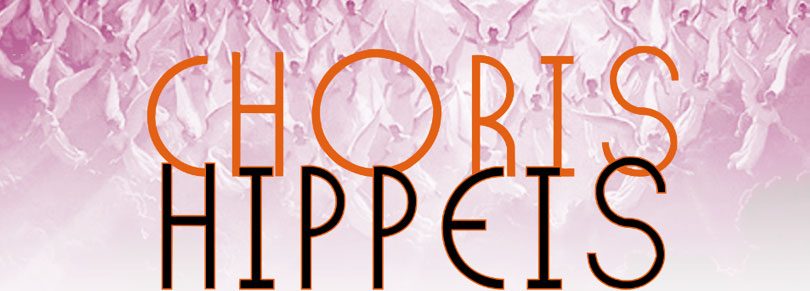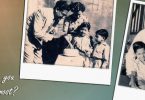A couple of weeks ago, when I was teaching my daughter, Sanaya, her alphabet and helping with her homework, my 9 year old, Talia walked in through the back door, crying. I was taken aback and asked her what happened, wondering if someone had shouted at her. She then showed me her right hand. She apologized to me as she said that she had fallen off her bike.
When I saw the baseball sized swelling on her limp wrist, I knew it boded broken bone. I told her that she had no reason to apologize although I later came to know that she hadn’t heeded her mother’s warning to be more properly attired when she goes riding. I quickly called my wife, Miriyam, and together we took her to the Emergency Room. The x-ray soon showed that her radius and ulna were broken. While children are commonly prone to buckle and even greenstick fractures due to their softer bone, it is infrequently the case that there is a complete fracture in an incident such as Talia’s.
I reckon that the problem was aggravated because she dragged her bike back home uphill with both her hands, as she did not want to leave it behind, almost a quarter mile away. On the way to the hospital, she was angry. Angry that God did not care. He was responsible, for He surely knew that she was going to fall, and yet did not do anything to protect and prevent her from the fall and its consequences. Miriyam and I were initially quiet, but as she carried on, we were desperately trying to look away, as we were both smiling at all the berating – oblivious of the seriousness of the fracture.
As this continued we yielded to the temptation, broke the possibility to her, that perhaps God was getting her attention – among other things – to listen to her mother’s caution in the future. When we did, she stopped short to ponder that possibility, momentarily. But I was reminded of four years ago, when I was overcome with a pain that invaded my mouth and from there, various points on my face without prior notice.
During that night of agony – on later reflection – I realized that the thought of God was farthest in my mind. When we experience or come across pain and suffering of the kind we don’t understand, we draw extreme conclusions such as God is either a rabid tyrant or a figment of our faintest imagination. I recall watching one of my favourite movies ‘Amistad’ where Africans are kidnapped from their villages and brought first to Cuba and then, due to a mutiny on the ship, to the United States.
The living conditions on La Amistad are so appalling that to say the slave traders treated the victims like animals is to give them an undue compliment. Naked Africans were shackled together and fed a bare handful of some gruel, and very likely defecated where they ate and slept. Due to this, many got diarrhea. Those suffering were then denied any more food. A young mother is overcome under the circumstances that she jumps overboard with the little baby at her breast.
Since slave trading was illegal by this time (circa 1840), when patrols boarded on the high seas, the slave traders would shackle the innocent to a sack of rocks and drop them into the ocean! When the ship is eventually taken from the mutineers by the authorities, a Connecticut court room lights up with argument, with different factions – from those representing the juvenile queen of Spain to the President of the United States (Martin Van Buren), and many others in between – having a stake in the outcome.
Under the circumstances, one has to actually call upon ancient mythology to analogize the state of the victims. Just as the gods punished Tantalus for feeding them his son Pelops, by having him spend eternity in a pool beneath a fruit tree with low branches which were raised as he reached for the fruit, and the water receded when he knelt to drink, the victims of the slave trade were ‘tantalized’ by the possibility of justice, and therefore their freedom.
Even if God were granted a hidden reason as to why He did not protect Talia from falling off her bike and the subsequent consequences, almost everyone finds it incomprehensible as to why a loving and powerful God – if He exists – would be but a silent spectator to such gross cruelty suffered by those on the Amistad. I was confronted by this thought myself. Over two recent nights, the kids have asked that I tell them stories from the Bible. So I decided to go through a chapter or two a night, from the life of Moses.
As I read the part where God tells Moses that the cries of the Israelites had reached His ears, I explained that they were in slavery in Egypt for over 400 years. Moses himself had escaped from this and was a shepherd in the Midianite desert for 40 years when God appeared to him in the burning bush. I was explaining that God’s timing is perfect, even if we ourselves think it way too long, and so I encouraged them not to stop praying, thinking it is all in vain.
But the thought crossed my mind…wow it took well over 400 years before God acknowledged that the cries of the slaves reached His ears. It was a long time. Did He really have to wait that long? I didn’t understand that. While I don’t want to be too harsh on Talia, I must say that she and I are God’s fair-weather friends. On a daily basis, we very likely perceive Him as a cosmic busboy who rushes at our every behest, and cleans up after our every delight.
Now, through the healing process we need to learn to trust in a God, who not only protects us from danger, but One who sees us through them as well; One who did not make us so that He may serve us, but made us for His glory. How should we understand our relationship with God when our right hand is broken? During the Battle of Marathon in 490 BC, the Athenian General Miltiades ordered a charge against the Persians because the Ionians, who were fighting with King Darius’ troops against the Athenians on the plain of Marathon, flashed a signal.
As historian John Hale explains, it said “choris hippeis,” (the cavalry are away). This meant that the fearsome Persian cavalry had been loaded the night before and those ships had slipped away in the darkness to get around the point of Attica, some 80 miles to attack Athens from its own shore, leaving the army helpless and pinned down at Marathon. A young man raced through the hills to carry the word to Athens to warn them to be prepared for the horsemen to appear off their coast.
After the victory at Marathon, Miltiades offered his helmet in the sanctuary of Zeus in Olympia with the inscription on the cheek piece, “Miltiades dedicates this to Zeus.” It was his thank offering for the supreme moment of his own life, a chance to lead a small city-state against the invading force of one of the greatest nations ever seen in the ancient world. Having been found by German archaeologists in the 19th century, it is still there in the archaeological museum in Olympia. Time has taken its toll though. It cannot be worn by a warrior today with any measure of assurance of safety.
However, St. Paul writes that we have been given a ‘helmet of salvation’ that protects us to eternity! It is not what we give to God, but His gift to us. What Talia and I need to remember is that when we have a broken hand, it is not “choris hippeis, God’s ‘cavalry is not away’ and has not abandoned us. Rather, His right hand is always with us, whether we feel it or not. His right hand is our strength when our hand is steady, AND when it is limp.






Leave a Comment